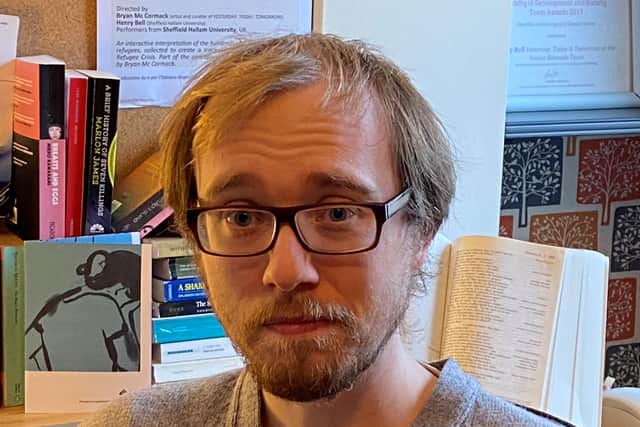'I expected the systems to speak to each other': Scots who had one dose elsewhere in UK ineligible for vaccine certificate
Dr Henry Bell, a lecturer at the University of the West of Scotland, received his first vaccine dose in Sheffield in May, before moving to Scotland for work.
He then had a second dose in Paisley in July.
Dr Bell has tried contacting his local health board and the national vaccine helpline, but has found himself unable to prove his vaccination status as it is currently not possible to combine proof of two doses from different nations in a single document.


Advertisement
Hide AdAdvertisement
Hide AdThis has prevented him from travelling abroad, he said, adding that he is concerned about the impact on the proposed vaccine passports which will be needed in future for attending certain events and venues.
“I live in an international household, my partner is not from the UK,” he said. “And this means that in terms of travelling to see her family, we haven't been able to do that.
“I think it needs raising that there is this quite big problem, that will have more of an impact on other people than me, I'm sure.”
“There is this broader conversation about what is a different country and what isn't, and it strikes me that this is a system that suggests that Scotland is an independent country rather than part of the United Kingdom.
“I was expecting the NHS to be able to speak to itself across the different countries in the United Kingdom, which it doesn't seem to be able to do at the moment.”
A spokesperson said the Scottish Government was looking into a solution to the problem.
“The requirement for travel is to be able to demonstrate that you are fully vaccinated,” the spokesperson said.
“If you have had one vaccination in Scotland and one elsewhere, then you will need two documents: one from each country.
Advertisement
Hide AdAdvertisement
Hide Ad“We are working on a solution to provide a single dose vaccination status report and details on this will be announced in due course.”
A message from the Editor:
Thank you for reading this article. We're more reliant on your support than ever as the shift in consumer habits brought about by coronavirus impacts our advertisers.
If you haven't already, please consider supporting our trusted, fact-checked journalism by taking out a digital subscription.
Comments
Want to join the conversation? Please or to comment on this article.
